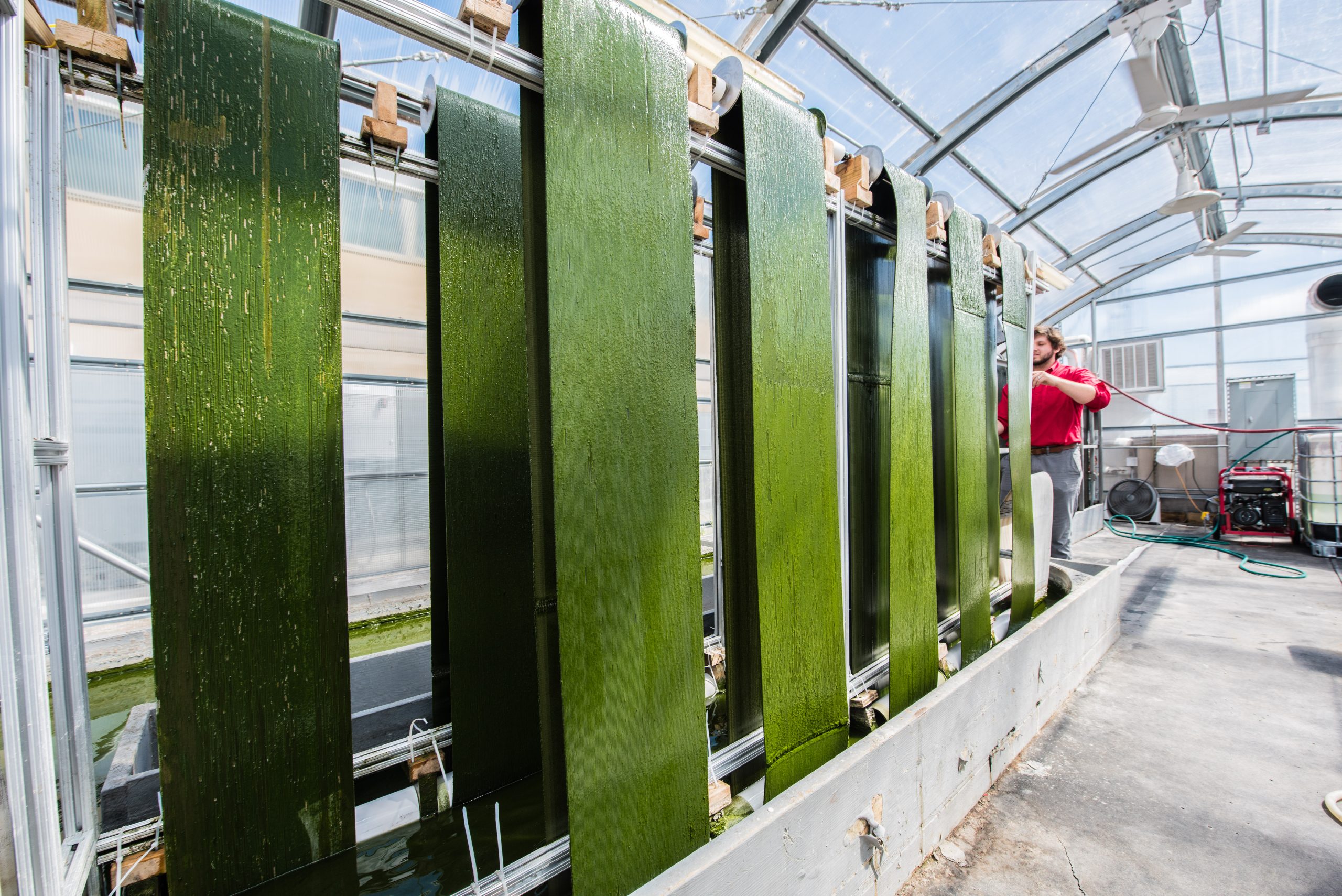Algae-based biofuels are, quite literally, a green energy source. The early 2000s saw a lot of hype around the promise of algae as an alternative to fossil fuels, but 20 years later, the bubble seems to have burst. Does this naturally occurring resource have a place in the renewable energy discussion?
Bloom and Bust: The Pros and Cons of Algae-based Biofuels
Why did the hype around algae die so suddenly, and what are scientists doing to revive the excitement around algae-based biofuels?
First, large-scale algae cultivation doesn’t have to compete with crop growth, ranching, or energy farms because algae grows in large concentrations in ponds. It can even grow in wastewater tanks already set aside for treating water.
Algae contains valuable oils manufacturers can convert into advanced biofuels. It can serve as the base for various fuels, including sustainable aviation fuel, renewable diesel, and biodiesel. This versatility makes algae-based biofuel applicable to a wide range of industries. Biofuels produced from algae are much better for the environment than petroleum-based diesel fuel. Every year, highway vehicles emit around 1.4 billion tons of greenhouse gases, so algae-based biofuel could serve a critical role in fighting climate change.
However, there are several challenges to its adoption. First, wild algae strains don’t produce enough lipids to produce large amounts of renewable biofuel. Scientists are working on bioengineering a high-yield lipid strain, but it could be years before a hearty strain becomes available.
Today, the global algae market generates an estimated $1 billion annually, but most of these sales come from turning the substance into food additives, supplements, and cosmetics. That’s because, as it turns out, it’s expensive to manufacture biofuels from algae.
Algae also has a low energy return on investment, and competing with subsidized and readily available fossil fuels is a challenge. It takes around $3,500 to $4,000 in plant costs to produce a kilowatt of energy from algae-based biofuel, compared to just $2,000 to $2,300 for coal. Die-off events, where algal colonies unexpectedly die off, only exacerbates these concerns.
Additionally, growing enough algae can be difficult. It requires a significant amount of water, and many parts of the world are experiencing record droughts. Growing algae on a commercial scale also requires intensive fertilizer input, which can pose an ecological threat if used in outdoor ponds or improperly handled. Growing algae in tanks could be a better option, but producing even a single liter of algae-based biofuel currently requires up to 3,650 liters of water. Thankfully, algae-based fuels can be produced using sources other than freshwater, such as salt water. Ongoing research, including a $510 million investment by the United States Navy, Department of Energy, and Department of Agriculture to the development of renewable, drop-in biofuels for the military, are helping to further reduce the demand for fresh water.
Finally, it’s expensive to harvest algae and extract its oil. Current manufacturing techniques require technicians to dry the algae completely so the lipids can be separated. As a consequence, it can take more energy to power the manufacturing process than the biofuel produces. However, scientists may be close to a solution, with chemical engineers at the University of Utah developing a technique for extracting lipids from wet algae. Implementing this process would reduce the time and energy required to produce algae-based biofuel.
Nipped in the Bud
Algae-based biofuel seems promising on the surface, but most energy startups have redirected their research toward using algae for other purposes or dropped out of the race altogether. If scientists can overcome the problems of high fertilizer requirements, low lipid production, and processing woes, algae could become a viable source of green energy. For now, however, it’s simply growing quietly in the background.
Originally shared by FuelsFix, May 25, 2023. Edited for clarity June 19, 2023.

